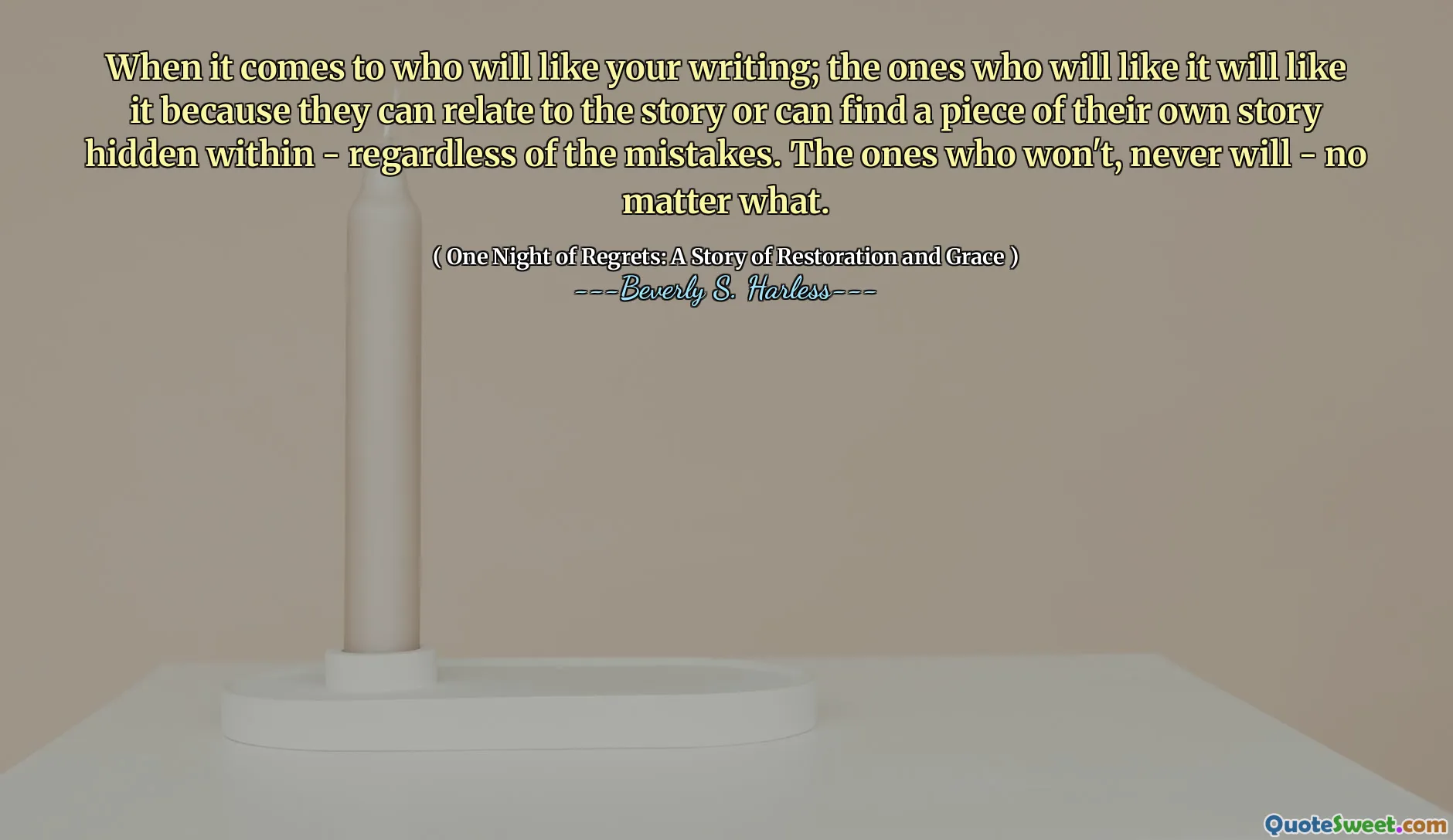
When it comes to who will like your writing; the ones who will like it will like it because they can relate to the story or can find a piece of their own story hidden within - regardless of the mistakes. The ones who won't, never will - no matter what.
This quote offers a deeply insightful commentary on the subjective nature of reading and appreciation of literature. It underscores the idea that writing resonates on a personal level, much more importantly than technical perfection or universal acclaim. The connection between the reader and the writer’s story is what truly matters. When someone finds a fragment of themselves, their experiences, or emotions reflected in the narrative, an invisible bridge is built, fostering empathy and understanding. This kind of resonance transcends imperfections or errors in the prose, rendering them irrelevant in the grand scheme of emotional or intellectual connection.
On the other hand, the quote simultaneously acknowledges the reality that no matter what one does, not everyone will find value or enjoyment in a writer’s work. This is a comforting yet sobering truth—it suggests a natural selectivity in taste and interpretation. The insistence that those who don't connect simply never will helps free writers from the paralyzing desire to please everyone, which often stifles creativity and authentic expression.
Ultimately, this quote is liberating. It affirms the importance of authenticity and encourages writers to focus on expressing their true stories rather than succumbing to unrealistic expectations. It also builds compassion for differing reactions and tastes, emphasizing that literature’s value lies in personal impact. Particularly in the context of 'One Night of Regrets: A Story of Restoration and Grace' by Beverly S. Harless, this message beautifully aligns with themes of restoration, understanding, and grace—acknowledging imperfections yet finding meaningful connection and redemption in shared human stories.


